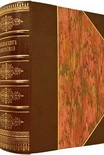The Twelve Lives of Alfred Hitchcock by Edward White (an ebook reader txt) 📗

- Author: Edward White
Book online «The Twelve Lives of Alfred Hitchcock by Edward White (an ebook reader txt) 📗». Author Edward White
Shadow of a Doubt was made around the time Hitchcock lost his mother in late 1942. Her name was Emma, as is the Newtons’ hardworking matriarch in the movie. In subsequent films, damaged or overbearing lone parents—plainly malevolent in the case of Anna Sebastian in Notorious—became a noticeable and important fixture in Hitchcock’s work, perhaps evidence, whether he consciously intended it or not, of the filmmaker exploring his own familial attachments on screen, communicating what life had been like after his father’s passing. There were complex feelings of resentment and frustration in the family home of his adult life, too—yet that place was also a happy refuge and an artistic springboard.
It would be difficult to overstate the importance of home in Hitchcock’s life and work, and above all the person responsible for that was Alma. She provided not just creative partnership but also emotional ballast, tethering her husband’s neuroses and protecting his large, delicate ego. To observers of the Hitchcocks’ marriage, it seemed that Alma’s sense of ambition was sated by her extensive involvement on the films that bore her husband’s name. But there are traces of dreams she had for herself. There was her nascent acting career—one of her roles was the daughter of David Lloyd George in a biopic of the former prime minister—which ran in tandem with her work in cutting and continuity, pursued with the same enthusiasm that Hitchcock evinced in his entry-level jobs. Mirroring Hitchcock’s precocious instructions on how to write good intertitles, a twenty-three-year-old Alma wrote an article for Motion Picture News about the secrets of “cutting and continuity,” which she averred were “art indeed, with a capital ‘A.’ ” By 1925, the year she accepted Hitchcock’s proposal of marriage and first worked as his assistant director, she had enough of a reputation to be profiled in a London magazine. “Alma in Wonderland: A woman’s place is not always in the home” revealed what it called “two deadly secrets” about her: she owns “horn-rimmed glasses” and “she has never had the time to get married!”
That changed soon enough. Alma and Alfred married on December 2, 1926. Hitchcock’s depiction of married life on screen could be rather bleak. During an argument in Secret Agent, Madeleine Carroll slaps John Gielgud, her supposed husband, across the face; he immediately slaps her back. “Married life has begun,” she says. It’s startling to a modern audience, but such scenes were meant as jokes, a version of cliché gags about the misery of being married that are still a staple of sitcoms and stand-up routines. Hitchcock drew immense strength from his union with Alma, though he sometimes failed to give as much as he took. He admitted that when Alma was in labor with Pat in July 1928, he found it so stressful that he took himself off for a walk, returning hours later to find the baby already born.
Being a wife and mother didn’t halt Alma’s career. In 1928, a movie she wrote, The Constant Nymph, was one of the biggest hits at the UK box office. Over the next several years, more of her work made it to the screen without Hitchcock’s involvement, including Nine till Six (1932), a film set in a women’s clothes shop, featuring an all-female cast. Her calling card was the experience of ordinary British women, prompting some researchers to speculate that it was through Alma that Hitchcock developed his interest in strong, rounded female characters and the domestic settings of so many of his films, especially in the first half of his career. When asked what advice she had for other young women hoping to build a career behind the camera, she was succinct: “Be interested,” and be prepared to put the job before everything else. Drive and dedication brought rewards that women of previous generations could have only dreamed of: “I’ve been almost all over Europe,” she marveled, and knew her homeland much better “than most girls get to know this country.”
As her husband’s name grew, so Alma’s involvement in the wider industry receded. It seems she made the decision to concentrate her attention on Hitchcock, in whose career she naturally felt both personally and professionally invested. Alma may have also had the sad, pragmatic realization that scampering up the ladder would be twice as hard for her as it would be for a man of equal capabilities. As her early successes demonstrate, cinema held opportunities for talented women—but the glass ceiling was real. In the late twenties, her own husband had told a journalist that although Alma was of the “utmost value so far as the story, and even the action went, some of the more unwieldy departments of film producing were difficult for her to control,” which he took as evidence that men were immanently more suited to being film directors, even though the majority of filmgoers were female. “Would you expect a girls’ school to be built by girls?” he asked the interviewer.* The chances of fulfilling her ambitions—creative and financial—were higher if she poured her skills and energy into a man with abundant talent, and equally abundant deficiencies for which she could compensate.
History is replete with such pairings; the shrewd and steadfast woman facilitating the success of a talented but fragile man is so familiar as to be drab cliché. What’s important about the Hitchcock-Reville marriage is that Hitchcock energetically advertised the centrality of their union to his work, deliberately weaving





Comments (0)